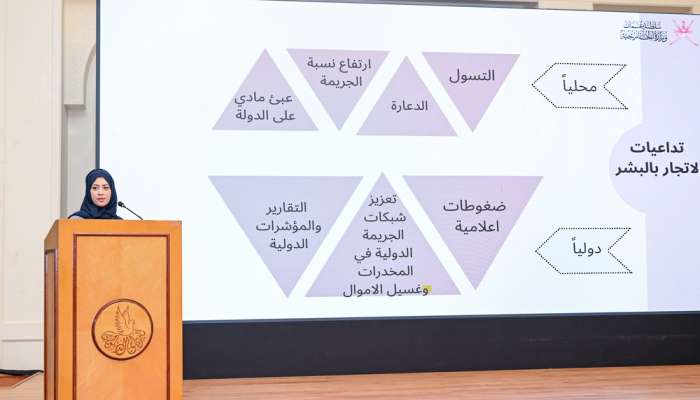
MUSCAT: In a bid to strengthen national efforts against human trafficking, Oman authorities have urged the public to stay alert to early warning signs and report suspected cases promptly.
With growing international scrutiny and the hidden nature of the crime, officials emphasized that raising awareness across all levels of society is critical to prevention and victim protection.
A high-level workshop held in Muscat on Monday underscored the government’s push to build a more informed and proactive community, with experts sharing key indicators of trafficking and legal mechanisms to fight the scourge.
Titled “Indicators of Human Trafficking, Raising Awareness of Its Dangers, and the Importance of Reporting It,” the workshop brought together stakeholders from the Ministry of Social Development, the National Committee to Combat Human Trafficking, the Royal Oman Police (ROP), and child protection representatives.
The ROP presented a detailed overview of common indicators of trafficking crimes in Oman, including restriction of movement, withholding of official documents, non-payment of wages, signs of coercion, and the employment of minors outside legal bounds. Other red flags discussed were forced begging, physical violence, violations of Foreigners Residence Law, illegal immigration, money laundering, migrant smuggling, suspicious movement of women and children, and poor living or working conditions.
Another key presentation by the National Committee for Combating Human Trafficking focused on the committee’s mandate to coordinate national response efforts, develop victim care programmes, and enhance border controls in line with international commitments. It also reviewed the local and international repercussions due to human trafficking.
The Ministry of Labour’s paper defined forced labour as any work or service imposed under threat, which the person did not willingly agree to perform. Among the indicators: confiscation of passports, abusive working conditions, and threats of dismissal or deportation.
The legal framework underpinning Oman’s anti-trafficking measures was also highlighted, including provisions under the Basic Law (Royal Decree No. 6/2021), the Anti-Human Trafficking Law (Royal Decree No. 126/2008), and a range of international agreements Oman has ratified.
These include the UN Convention against Transnational Organized Crime (Royal Decree No. 37/2005), the Arab Convention against Transnational Organized Crime (Royal Decree No. 6/2015), and the Arab Charter on Human Rights (Royal Decree No. 16/2023).
Officials concluded the session by calling for broader public engagement, encouraging citizens and residents to speak up and report suspicious activity to help protect vulnerable individuals and dismantle trafficking networks.